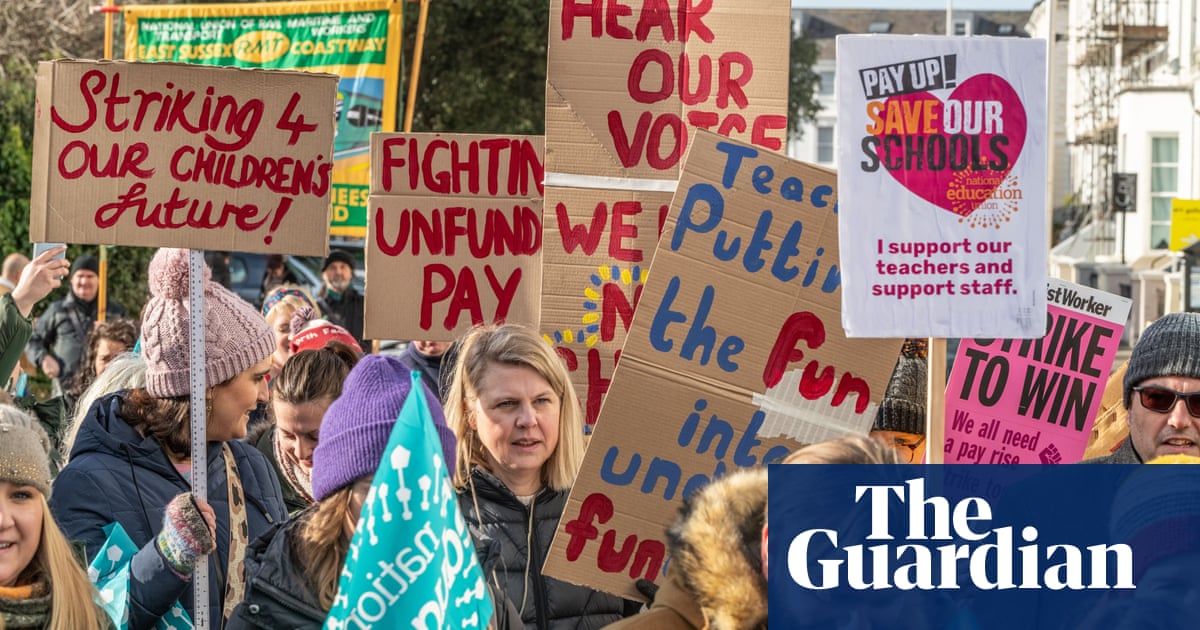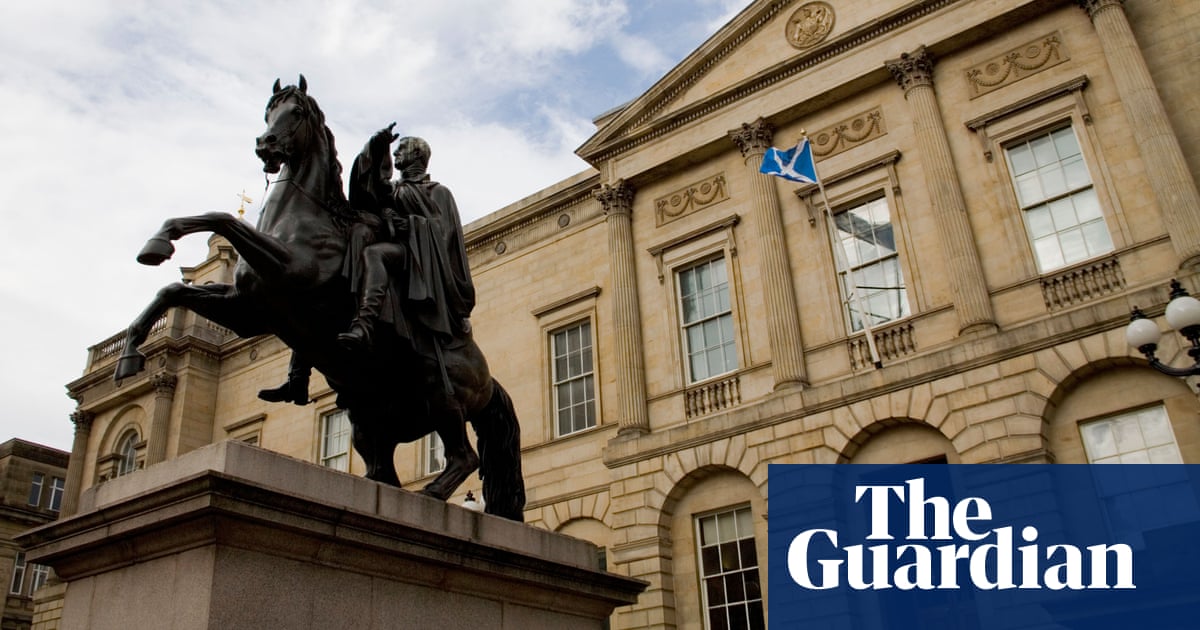
Tens of thousands of Scottish teachers are to take strike action later in November after union leaders won an overwhelming mandate to intensify a long-running wage dispute.
The EIS, Scotland’s largest teachers’ union, said teachers would strike in nearly all Scotland’s schools on Thursday 24 November, in the first national stoppage by the union for almost 40 years, in pursuit of a 10% increase in pay.
The EIS said 96% of the 35,000 teachers who took part in its ballot had backed a strike, after they had rejected a 5% pay offer from employers. Teachers’ unions in England and Wales are also balloting their members on strike action.
The Scottish government and the Convention of Scottish Local Authorities (Cosla), which represents the country’s 32 local councils, said they were “working at pace” to reach a settlement in the dispute but warned a strike would unfairly punish children.
Shirley-Anne Somerville, the Scottish education secretary, said the government valued teachers.
“We recognise the vital importance of reaching a fair and affordable resolution on pay, both for the workforce during a cost of living crisis and for the pupils and parents who rely on the vital services our teaching workforce deliver,” she said.
“Strikes in our schools are in no one’s interest – least of all for pupils, parents and carers who have already faced significant disruption over the past three years.”
Teachers across the UK are preparing for similar strike action in a number of interlinked disputes. The NASUWT teaching union is balloting its members in England, Wales and Scotland, while the National Education Union is also asking its members in England and Wales to back a strike over pay.
In England and Wales, teachers in state schools were given a 5% pay rise in September by the governments in Westminster and Cardiff, but the two major teaching unions are arguing for a higher pay increase to reflect the much faster pace of inflation since then.
Headteachers and college principals are also considering industrial action, with the Association of School and College Leaders describing the 5% pay award for 2022-23 as “a significant real-terms cut” after the steep rise in the cost of living, arguing that teachers’ pay has already fallen by one-fifth in real terms since 2010.
Scottish ministers say the cost of living crisis, rising inflation, tax cuts at a UK level and the costs of weathering the economic storm unleashed by Liz Truss’s mini-budget in October have severely hit the devolved government’s budget.
John Swinney, the acting finance secretary, said last week that significant pay rises were unaffordable unless there were cuts to services, because of the long-term impact it would have on government budgets. The Scottish government was already having to make further cuts of £615m, while committing more than £700m to meet recent public sector pay deals.
Andrea Bradley, the EIS’s general secretary, said: “We hoped not to get to this point [but] with a pay rise for teachers now more than seven months late, and with the last pay offer having been rejected by teachers almost three months ago, the blame for this move to strike action sits squarely with Cosla and the Scottish government.
“They have sat on their hands for far too long, dithering and delaying while the soaring cost of living continues to erode the value of their pitiful offers to Scotland’s teachers.”











